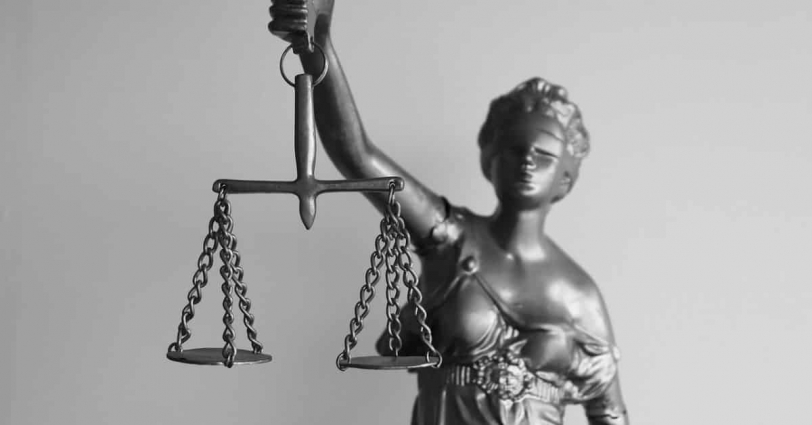I wrote this article in Japanese and translated it into English using ChatGPT. I also used ChatGPT to create the English article title. I did my best to correct any translation mistakes, but please let me know if you find any errors. By the way, I did not use ChatGPT when writing the Japanese article. The entire article was written from scratch by me, Saikawa Goto.
Introduction
Movies and books covered in this article

Three takeaways from this article
- I believe that “Tacit understanding” and “manners” cannot be considered a “standard of correctness.”
- Can anything that is not defined as “do not do XX be considered “correct”?
- Even if there is no fundamental conflict, conflicts can arise through “proxy wars.”
Self-introduction article


Published Kindle books(Free on Kindle Unlimited)
“The genius Einstein: An easy-to-understand book about interesting science advances that is not too simple based on his life and discoveries: Theory of Relativity, Cosmology and Quantum Theory”
“Why is “lack of imagination” called “communication skills”?: Japanese-specific”negative” communication”
The quotes used in this article are based on notes taken at the movie theater from movies in Japanese and are not direct quotes from the foreign language original movies, even if they exist.
Even in Our Everyday Lives, “Justice” Can Always be in Conflict. How Should We Overcome Such Conflicts?
What is Necessary to Assert Something is “Correct”

The word “correct” is something we often hear in our daily lives. It would be a word that we use without much thought, as if it’s obvious.

However, have you ever stopped to think about what the state of being “correct” actually means? It’s such a familiar concept that we rarely have the opportunity to deeply consider it.
The following discussion is different from the concept of “correctness” in “mathematics” or “science.” I have written about those in detail in another article, so please read the article below for more information.

In this article, let’s think about “correct” that is used in our daily lives, not in an academic context.
Now, is the claim “you should not kill people” correct? Most people would probably answer “correct.” Let’s think about why we feel it’s correct. There could be various answers such as “because I don’t want to be killed” or “because it’s sad when someone is killed,” but I think many people would answer “because it’s decided by law.”
In other words, it means that there is always a “standard of correctness” behind “correctness.” And that “standard of correctness” is never limited to “law.” Various things such as rules, regulations, norms, and exam grading criteria apply. The important point I think is that there is a common understanding in a community that “you should follow the ‘standard of correctness’ in that community.”

So, in my opinion, things like “tacit understanding” and “manners” don’t fall under the category of “standard of correctness.” They are the kind of things that may be evaluated as “better” if we behave in that way, but not necessarily “wrong” if we don’t. I don’t consider them as part of the “standard of correctness.”

This is my premise.
Now, it is because there exists a “standard of correctness” such as laws and rules that the evaluation of “correct” can be established. And that’s why the argument “it’s okay to kill someone” can also be valid.
For example, in a battlefield, it is deemed acceptable to “kill someone.” Why is that allowed?

That is because of the existence of a “standard of correctness”. For example, various international laws exist about war, and if the war doesn’t violate those laws, it is recognized as an “international law-approved war”. In such a war, killing people is allowed.
On the other hand, in the world, there are situations where “correctness” is in conflict in a world where “standard of correctness” does not exist in the first place. In modern times, such conflicts can be seen mainly on the internet. The conflicting parties argue that “their own claim is correct”, but since there is no standard to determine “what is considered correct”, the conflict is ultimately meaningless. The only way to stop this futile conflict is to create a “standard of correctness” somehow.

In the world, there are various values, and in many countries including Japan, “freedom of thought” is recognized. Therefore, as long as it does not violate the “standard of correctness” such as “law,” any values should be allowed. Of course, capitalism incorporates the logic of “majority rule,” so an interim judgment of “accepting the majority opinion as correct for the time being to move society normally” is made. However, this judgment is only “temporary to move society” and does not mean that the majority’s values are correct.


When I use the word “correct,” I consider things like this. When I see discussions unfolding where people are confused about these things, it’s exhausting and I don’t want to get involved.
So far, I’ve been writing about how “a standard of correctness” is necessary to judge “correctness.” However, there is one point to note about this judgment.
And this movie skillfully uses this “point to note” to develop its story.

The Idea of “We Can Do Anything Without Regulations”
Laws and rules are often presented in the form of “you must not do XX”. Of course, there are also expressions like “you may do XX in the case of XX”, but this is ultimately just a rewording of “you must not do XX except in the case of XX”. It can be said that the “standard of correctness” exists in the form of “regulating something”.
So, would anything, which is not regulated, be considered “correct?” I feel that this is actually a difficult problem to answer.

In other words, you could say that the question is whether “not wrong” and “correct” are the same thing.
“Basically,” but this is how I see it: Bad laws are also laws, and since they are laws, we must obey them, and if we are dissatisfied with them, we must try to change the laws themselves. While I do not intend to apply this way of thinking to every situation in the world, I do believe that it is generally appropriate behavior.

Now, with these principles in mind, I think that we should consider everything that is not regulated as “correct”. If bad laws are considered laws, then legal loopholes would be also supposed to be considered law. Even if things that should be considered originally “bad” are being overlooked due to flaws in the law, I think in my head that the principle argument is that we should first work to change the law.
However, my intuition tells me that it’s difficult to fully agree with this. “Not wrong” is simply “not wrong” and can never be equated to “correct”. That’s just my intuition on the matter.

I think the phrase “not wrong” implies a reservation that it cannot be said to be completely correct. And I feel that we should not ignore that reservation. If we recognize this reservation, we may realize that effort or procedures are necessary to change “not wrong” to “correct”. However, if we equate “not wrong” with “correct”, we may not even consider such a perspective.
Therefore, I feel reluctant to accept the argument of “we can do anything without regulations” even if it means going against my own principles.

On the other hand, even if I accept it, I don’t think that I want to accept the claim of “we can do anything without regulations” made by the strong. That is indeed arrogant. I want to only allow this claim if it is uttered by someone in a weaker position.
Therefore, it is difficult to come to a conclusion on how to judge the claim of “we can do anything without regulations” because it cannot be easily determined.

In this movie, a certain action causes a stir in the town, even though it doesn’t violate any laws. However, it is that kind of behavior that I am troubled whether it is acceptable just because it is not in violation. Furthermore, the fact that the person who did it is someone who can also be called a “weak person” makes the story even more complicated. It raises the question of whether that person can really be called weak in the first place, adding to the complexity.

Although we often use the word “correct” as a matter of course, this film could be an opportunity to reconsider what we mean by “correct” and in what situations we feel something to be “correct”.

Content Introduction
Mildred Hayes lives in a town called Ebbing, Missouri. While driving on a deserted road leading to her home, she notices three dilapidated billboards and decides to visit the company responsible for them. It turns out the last time the billboards were used was in 1986. She paid for three pieces and installed huge billboards with only the words.
“Raped While Dying”, “Still No Arrests”, “How Come, Chief Willoughby?”
These billboards are about her daughter, Angela. Angela was raped and murdered, and the killer has not been caught yet.

The newly installed billboards quickly became the talk of the town. It’s not surprising. When the Ebbing Police Station visited the billboard management company, they were told that they couldn’t remove them since they weren’t breaking any laws. With no other choice, the police had to back down.

Chief Willoughby went to Mildred’s house and explained the situation to her. He wasn’t neglecting his duty. In fact, there are cases where there are no clues at all. He asked her to understand.
Furthermore, the chief told her that he has cancer and only has a few months left to live. In other words, he implieded if she could remove the billboards, but Mildred answered, “I know.”
It’s meaningless after already dead, right?

Chief Willoughby is known as a “person of character” in the town. By installing a sign that speaks ill of such a police chief, Mildred’s son was bullied at school, and she herself received a scolding from a priest. While there are voices of support for her, the majority are critical.
However, she remains unwavering in her beliefs. Ignoring the criticism and pushing back against resistance, sometimes resorting to violent means, she hopes for progress in the investigation of the incident in which her daughter lost her life.

Impression
It was a really interesting movie. As I mentioned at the beginning of this article, it’s wonderful how the conflict between “correctness” is depicted by bringing up the analog existence of three billboards. It makes us think about how society should confront the “standard of correctness”.

Moreover, the relationship between Mildred and Chief Willoughby is also brilliantly portrayed in this movie. It’s also interesting to see how their relationship reminds us of the dark side of the internet society.

It would be hard to really feel it unless you watch the movie, but Mildred and Chief Willoughby are not really emotionally opposed. While Mildred seems to be criticizing Chief Willoughby outwardly and Chief Willoughby appears to be irritated by her, it’s not such a simple story.
First of all, Mildred probably isn’t blaming Chief Willoughby personally. The reason for this feeling can be found in her response when she was asked by a police officer at the Ebbing Police Station, “Was it necessary to bring up Chief Willoughby’s name?” Her answer was,
Someone has to take responsibility.

Mildred’s criticism is not directed solely towards Chief Willoughby, but rather towards the overall response of the Ebbing Police Station. She doesn’t hold a grudge against Chief Willoughby personally, but believes that someone needs to take responsibility, and if that’s the case, it can only be Chief Willoughby. Therefore, I consider that she would has little frustration towards him personally.
Similarly, Chief Willoughby nevert view Mildred in a negative light. Later in the film, there are some lines that directly indicate this. Even before that, however, he conveys that he really wants to solve Angela’s case and shows his stance that he understands how she feels about her words and actions.

In other words, Mildred and Chief Willoughby, who appear to be at odds, are not actually in conflict.

However, the residents of Ebbing town act on the assumption that “Mildred and Chief Willoughby are in conflict,” making the situation more complicated. It is like a proxy war, but since the two people who are supposed to be in conflict are not essentially in conflict, it is being hard to know what “proxy” they are working on.
This is exactly the situation that can be seen in the internet society.

People themselves may not have any conflicts or disputes, but their followers or fans may voice their opinions, such as “poor thing,” “that’s terrible,” or “unacceptable,” causing an unexpected uproar in places where there should be none. Although everyone thinks they are fighting on behalf of someone else, in reality, no one is fighting for anyone else, which is a situation that seems to be happening all over the place nowadays.
I thought it was very cleverly portrayed in a story that primarily uses analog tools such as billboards.

The residents of Ebbing town don’t seem to care about the opinions of those involved and are loud with statements like “it should be this way” or “that’s ridiculous”. Moreover, when they see that there is a lot of support for Chief Willoughby, who is known for his personality, some of them try to get on board with the majority. It’s a reflection of how things are in the online world.
Mildred’s actions stem from a stance of “we can do anything without regulations”, and as previously mentioned, it’s difficult to judge. Also, Mildred is “socially vulnerable” in the sense that she is “the mother of the victim Angela,” and she has the sympathy of the town’s residents regarding this incident, but it is difficult to treat her as “socially vulnerable” in the sense that she “sometimes tries to move public authorities in violent ways,” including the placement of the billboards.

I don’t like this kind of expression, but Mildred’s actions might have been more easily accepted if she had been “weak as you can see.” However, Mildred is not “weak as you can see” at all. Even as an objective audience viewing the whole story, it’s difficult to empathize with her. But because she’s such a complicated character, her actions make for a thought-provoking story that shakes up society.
Mildred is a very complicated person whose thoughts and actions are hard to understand, but she has her own clear convictions. While I can’t wholeheartedly praise her beliefs, since it’s a story where there’s no “standard of correctness,” it’s hard to say that she’s “wrong.” While violent acts aside, I believe that her values should be tolerated.
We need to think about how to make such complexity work in society. It was a work that made us feel such questions.

Conclusion
It is something I often insist on, but I think we should talk about “like/dislike” instead of “good/bad”.
“Good/bad” implies judging whether something is right or wrong, but in many situations, there is no “standard of correctness”. Discussing whether something is right or wrong in situations where such standards do not exist is pointless.

That’s why I believe it’s better to talk about things in terms of “like/dislike” rather than “good/bad.” There is no standard of correctness in many situations in the world, and discussing whether something is right or wrong in such situations is meaningless. I think that like or dislike is the only criterion that matters, and as long as it doesn’t hurt or slander anyone, we are free to express any opinion.
In the movie “Three Billboards Outside Ebbing, Missouri,” there are many things that make we want to judge them as “good/bad” or “correct/incorrect.” However, it may be better to hold back such judgments and think in terms of “like/dislike.”
I think this is a work that encourages a shift in the way we perceive things.

Published Kindle books(Free on Kindle Unlimited)
“The genius Einstein: An easy-to-understand book about interesting science advances that is not too simple based on his life and discoveries: Theory of Relativity, Cosmology and Quantum Theory”
“Why is “lack of imagination” called “communication skills”?: Japanese-specific”negative” communication”







コメント